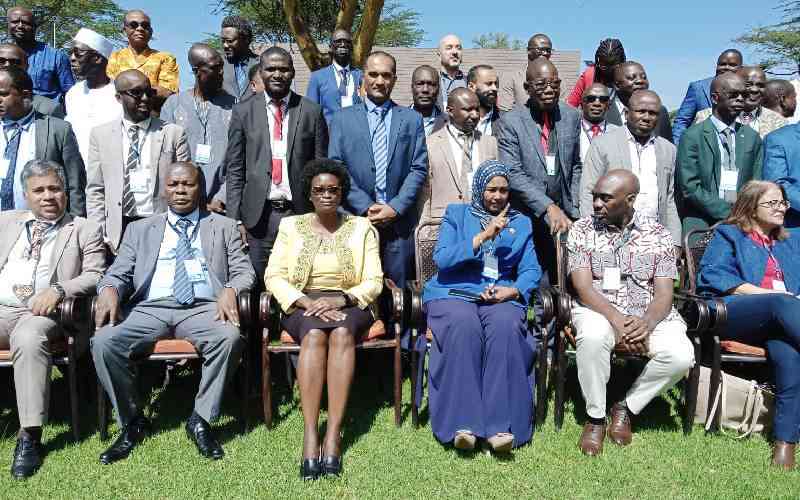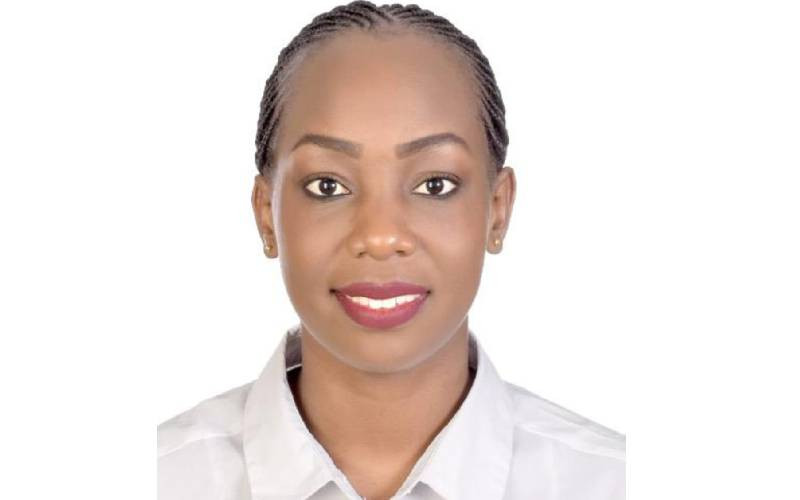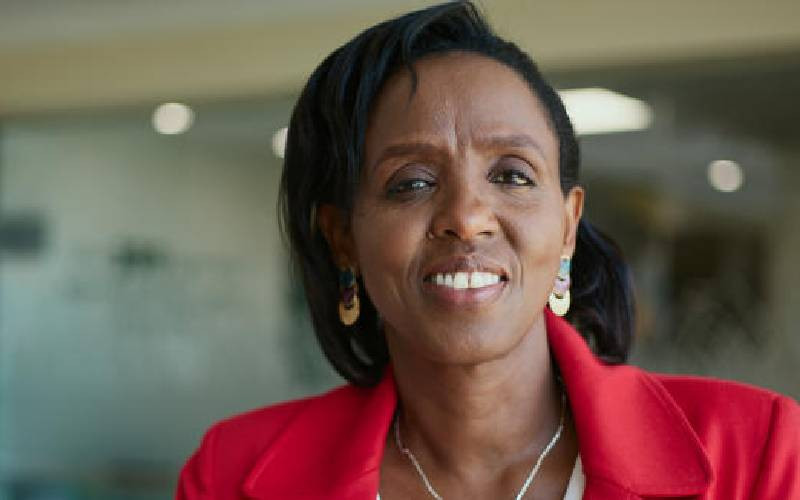 |
|
Christine Auma (right) and business partner Emily Okumu display dried and salted fish at the Smartfish Trade event in Entebbe, Uganda. (Photo: Judy Nguta/Standard) |
By Judy Nguta (@JudyNguta)
Entebbe, Uganda: The contribution of fish in achieving food security in Africa is far from being achieved, although the region has a great potential.
Food and Agricultural Organisation of the United Nations (FAO) has identified post-harvest losses, which occur at different stages of the value chain, as a major threat to food security in Africa. These losses occur both during transportation and processing, affecting the quantity and nutritional value respectively.
Under the framework of the European Union (EU) funded SmartFish programme, FAO is now aiming to carry out direct actions to address the root causes of the losses through provision of trainings and awareness activities. The trainings are taken to specific fishing communities in the Smartfish region. Individuals are identified from records in ministries and co-operative societies.
“The FAO component on Food Security through SmartFish has launched a new video-training packages to teach small scale fisheries operators in Kenya on the importance of hygiene and quality in the small scale fisheries for better quality and business,” says Davide Signa, the FAO Expert on Food Security.
Study shows that over five million people are employed in fishing and aquaculture activities in the Southern and Eastern Africa. This number will not be enough to supply fish to the increasing demand in Africa.
According to FAO research, demand for fisheries products is expected to rise in the future. Based on current demand, another 27 million tonnes of fish would be needed to maintain the present level of per capita consumption in 2030.
Fish traders from the Eastern, Southern Africa and Indian Ocean (ESA-IO) region meeting in Entebbe, Uganda, and who have gone through the programme demonstrated how possible it is to achieve self sustainability in both providing for their livelihood and feeding the region.
 |
|
Smoked catfish from Malawi on display at the the Smartfish Trade event. ( Photo:Judy Nguta/Standard) |
Smartfish has endeavoured to bring together fish dealers and encourage the trade, which is shunned by many especially because of the numerous activities involved from fishing to getting the product to the market. “The SmartFish Trade Event is providing a productive forum for regional producers and traders to see what others are doing in terms of value-addition, packaging and labelling, product development and also the various challenges for specific markets and products” said Chris Short, Fish Trade Specialist for the SmartFish Programme.
Across borders
Fish traders confessed that the business is yielding fruit and expressed the interest to have wider avenues to expand their business and supply fish even across borders.
Through the events, fish producers are able to identify prospective retailers and vice versa.
“I officially appeal for more fish suppliers, I occasionally run out of stock,” says Susan Oduor, who sells her fish from Nairobi. “This event is helping us to get new markets in Democratic Republic of Congo (DRC) but also to network with other traders and learn from their experiences to better cope with the challenges we face,” said Christine Auma.
Auma buys her fish from Lake Turkana and sells it to Democratic Republic of Congo.
Logose Perus is the Chairperson, Kiyindi Women Fish Processors Association in Uganda’s Buikwe District, and has no regrets from her association with Smartfish.
Stay informed. Subscribe to our newsletter
She ventured into the activity after a training, which had been brought to them through the programme and saw a great opportunity in dagaa – referred to as mukene in Uganda.
“Fish business has improved our livelihoods and enabled me pay school fees for my children. It has also given me a job in training people on value addition,” says Logose.
The event was the second by Smartfish and it brought together 100 participants from 13 countries: Kenya, Burundi, the Democratic Republic of Congo, Ethiopia, Madagascar, Malawi, Mauritius, Rwanda, South Sudan, Tanzania, Uganda, Zambia and Zimbabwe. The first one was held in 2012, in Lusaka, Zambia.
This event brought together producers, traders, retailers and distributors and aimed at promoting trade while encouraging value-addition and the emergence of new products.
Traders displayed various fish products; dried, salted, smoked, powdered, fried, fresh and frozen all carefully processed and packaged to present their merchandise in the best possible form.
The Smartfish programme is funded by the European Union and implemented by the Indian Ocean Commission (IOC) in collaboration with the Common Market for Eastern and Southern Africa (COMESA), the East African Community (EAC) and the Inter-governmental Authority on Development (IGAD).
 The Standard Group Plc is a
multi-media organization with investments in media platforms spanning newspaper
print operations, television, radio broadcasting, digital and online services. The
Standard Group is recognized as a leading multi-media house in Kenya with a key
influence in matters of national and international interest.
The Standard Group Plc is a
multi-media organization with investments in media platforms spanning newspaper
print operations, television, radio broadcasting, digital and online services. The
Standard Group is recognized as a leading multi-media house in Kenya with a key
influence in matters of national and international interest.
 The Standard Group Plc is a
multi-media organization with investments in media platforms spanning newspaper
print operations, television, radio broadcasting, digital and online services. The
Standard Group is recognized as a leading multi-media house in Kenya with a key
influence in matters of national and international interest.
The Standard Group Plc is a
multi-media organization with investments in media platforms spanning newspaper
print operations, television, radio broadcasting, digital and online services. The
Standard Group is recognized as a leading multi-media house in Kenya with a key
influence in matters of national and international interest.










